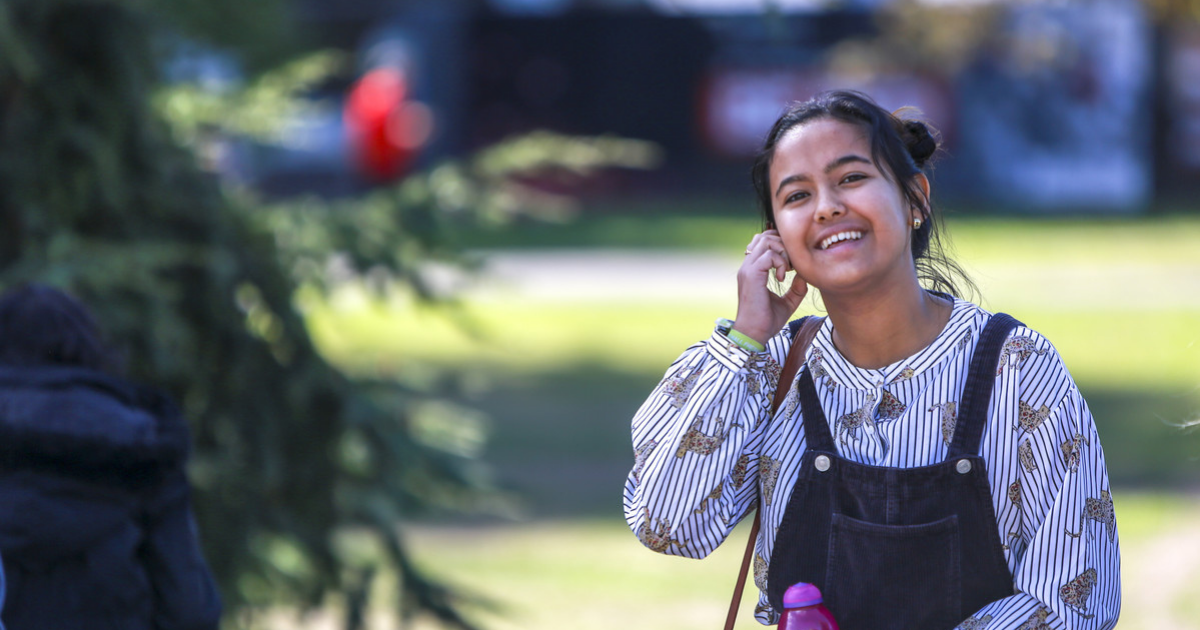University can be a time to have fun as well as gaining more knowledge, increasing your level of education and job eligibility.
Before coming to university it’s great to have a solid foundation of skills and knowledge in place. Think of this foundation as life skills i.e. ‘bricks’. Have these ‘bricks’ cemented in prior to arriving and you’re set to enjoy your time at Reading.
How many of these life skills can you check off?
Budgeting – ask a family member or a friend/neighbour who runs their own household to figure out with you how to make sure you don’t go overdrawn. Calculate roughly what bills you’ll have, and how much money you’ll have left, to use on whatever you want. This could avoid a shock at some point in the academic year.
Bank account – it is a good idea to set up a student bank account before you arrive. Our Student Financial Advisory team are on hand if you want to ask them any questions about this.
Meal planning – it’s easy to fall into eating pizza or takeaways every day which is expensive and unhealthy. Discuss a way of making a weekly meal plan, to ensure variety – It makes shopping easier too. To cut costs, make a packed lunch that is practical to take with you.
Medical appointments – who makes your medical appts while you’re still living at home? When you come to Reading it’s usually best if you register with the University’s Medical Practice, so you are prepared if you need to make appointments.
Medication – make sure you have enough of any regular medication with you, to last till you go home again, or until you’re registered with a local GP practice. If you’ve never managed your own medication, make sure you know how often to take it and how long it’ll be before you need to order a new prescription.
Keeping yourself safe – if you’re out at night, one safety precaution is to tell someone where you are. There is lots of great information on safety at university.
Insurance – check whether your valuables (laptop, mobile, musical instrument …) are covered by your home insurance while you’re at uni.
Washing machine – you’ll need to figure this item of equipment out, so ask someone in your house to show you.
Shopping – might be an idea to ask what’s needed at home and go food shopping for your current household a few times, to get used to prices and how/what time of day/where to find bargains.
Cooking – ask for recipes to take with you, from whoever does the cooking at home. How can you tell when something’s cooked enough to be safe to eat? Preferably join in the preparation well beforehand, to get some practice, then have a go at cooking unassisted, before you rely entirely on your own skills.
Microwave – if you don’t use one at home, ask a friend who lives nearby to show you a basic programme for heating food up. It’s practical and makes sense for when you might be in a rush at uni.
Ironing – you may not be bothered about having ironed clothes. If you are, though, and have left this to someone else to do for you, now’s the time to have a try at home.
Getting up in time – who usually makes sure you get out of bed and out of the house on time in the morning? Start taking that responsibility well before it’s a necessary skill, so it becomes second nature and you’re on time for classes.
Public transport – find out how to take the bus, the train or a taxi, safely and confidently.
Washing-up – there are no dishwashers in halls. As washing-up can cause a lot of arguments in shared accommodation, you can avoid tension by learning this simple, practical task.
Living with a chronic medical or mental health condition:
Register with the Disability Advisory Service – make sure this is done well before you arrive.
Disabled Student Allowance – find out whether you’re eligible for DSA, and if so, apply for it as soon as possible.
Day-to-day support – have a detailed discussion with the person who helps you most at home, about what support you’re likely to need academically, and for daily living. Contact the Disability Advisory Service and let them know, so that they’re more likely to be able to help provide them for you. That way, your start at university can be a lot smoother.
